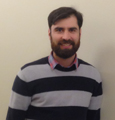A Framework for Success in Big Data
Big data continues to revolutionize almost every discipline. But a key question—how universities can prepare students, researchers and staff with the skills appropriate for success in big data—is largely left unresolved.
That’s why what Shannon McWeeney is doing is so compelling. Last year, Dr. McWeeney—who is the Head of the Division of Bioinformatics and Computational Biology at Oregon Health & Science University’s (OHSU) Department of Medical Informatics and Clinical Epidemiology—knew it was time to revisit the curricula in her Masters and PhD programs. She wanted to ensure the content and instruction that she and the other division faculty were utilizing was fully preparing students to succeed in the rapidly-changing world of computational medicine.
The review was something that Dr. McWeeney and her faculty colleagues had done before. But this time, she used an occupational profile developed at ODI as the starting point. The profile was the result of a national expert panel (which included Dr. McWeeney herself, as well as other experts from Google, Microsoft, and NASA’s Jet Propulsion Laboratory), held in 2014, that identified the core skills and knowledge needed to succeed in big data-enabled professions.
While the profile had already been nationally vetted by ODI, OHSU sent it out to other experts specifically in data science and analytics in medicine, translational, clinical and operational research.
“Based on both our departmental review and external feedback, it was clear this was an excellent framework to guide the curriculum revisions,” says McWeeney.
Machine learning, long a favorite elective of students in the graduate program, became a required course. So too did an Analytics course that OHSU had developed in partnership with Kaiser Permanente Northwest.
The retreat also helped highlight the importance of “synthetic thinking,” the skill of placing a combination of ideas into a complex whole. McWeeney believes this skill is essential for success.
“One of the major challenges in this era is making data accessible,” she says. “It is critical that our students can place data in context of the domain, so that it can be explored and knowledge can be extracted. This and critical thinking are as important, if not more so, than the computational and quantitative skills."
Think your university program could benefit from using the Occupational Profile of a Big-Data-Enabled Specialist? Contact us for more information.
- bgranofsky's blog
- Log in to post comments



 Burt Granofsky is senior writer at EDC. In addition to writing content for EDC.org, he helps to produce ODI's monthly newsletter. He also contributes to the Institute’s Twitter feed. A former elementary school teacher, Granofsky is interested in the ways that K–12 teachers can help their students build data literacy skills at an early age.
Burt Granofsky is senior writer at EDC. In addition to writing content for EDC.org, he helps to produce ODI's monthly newsletter. He also contributes to the Institute’s Twitter feed. A former elementary school teacher, Granofsky is interested in the ways that K–12 teachers can help their students build data literacy skills at an early age.